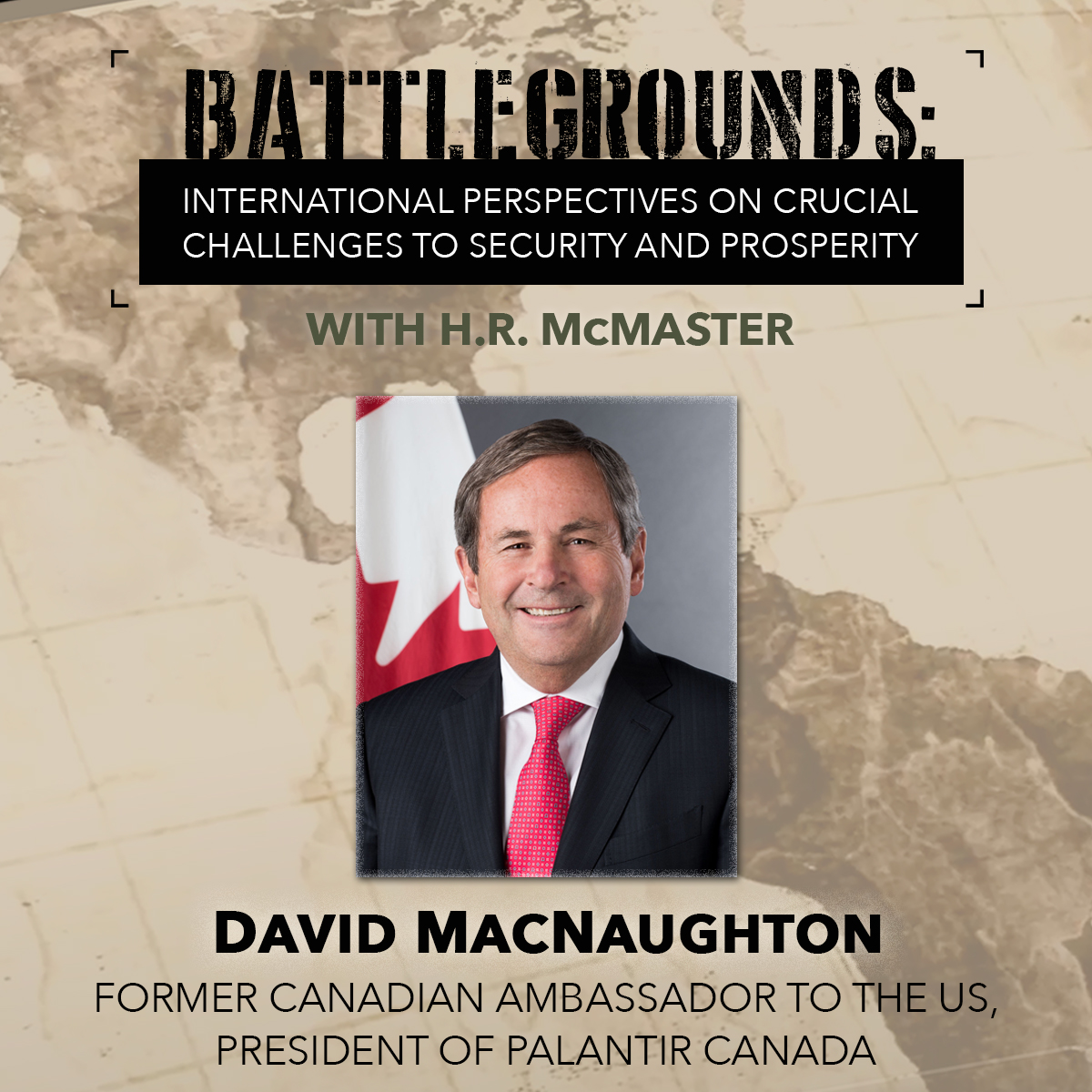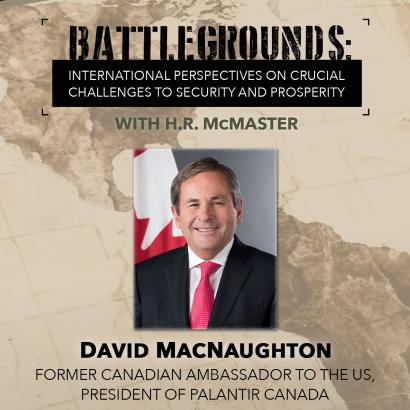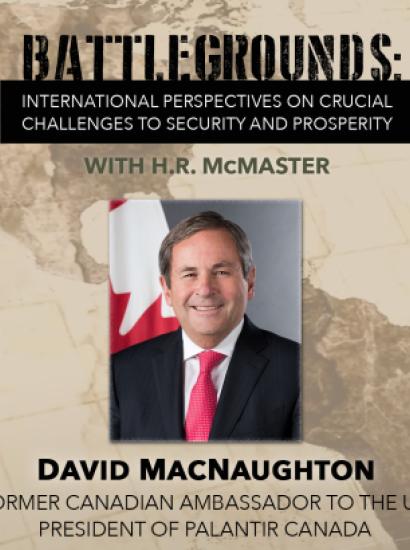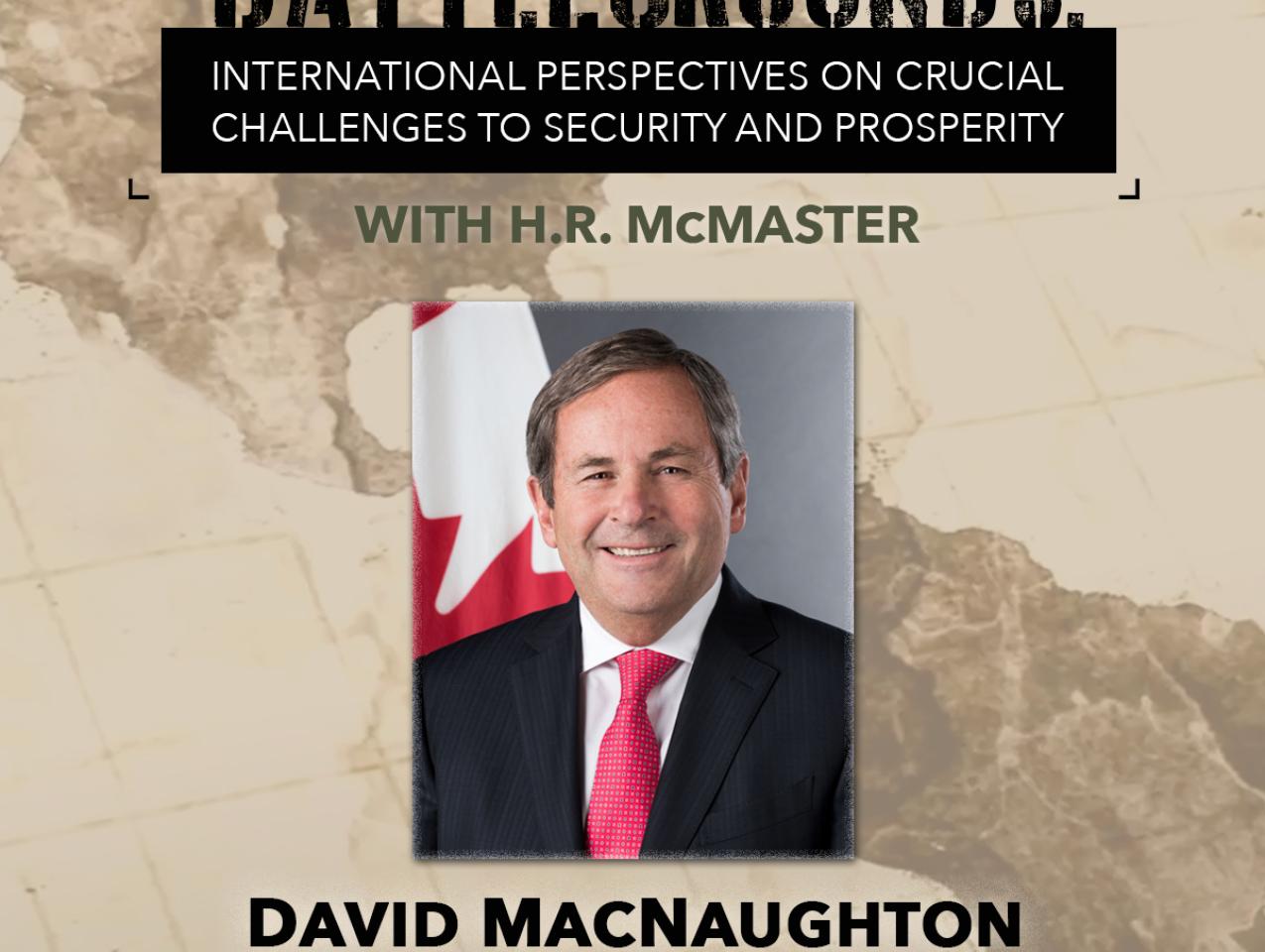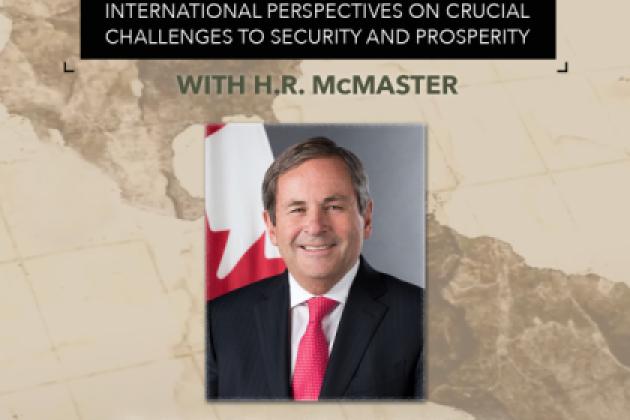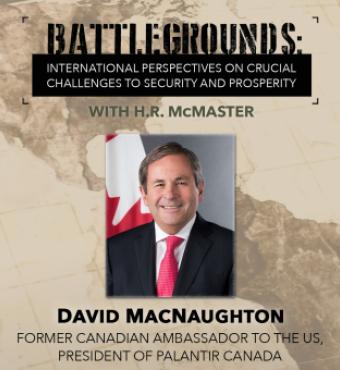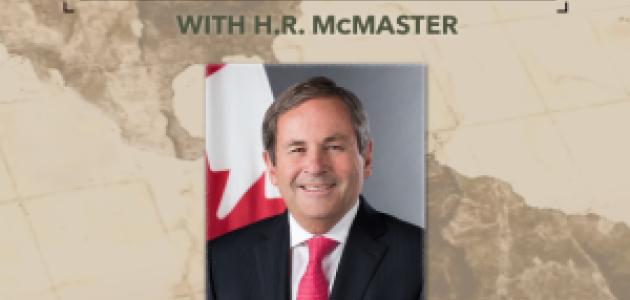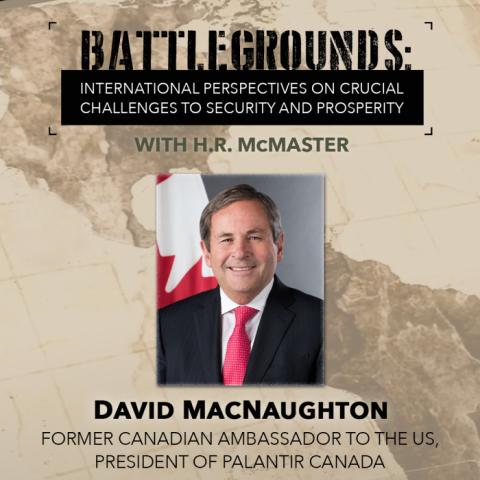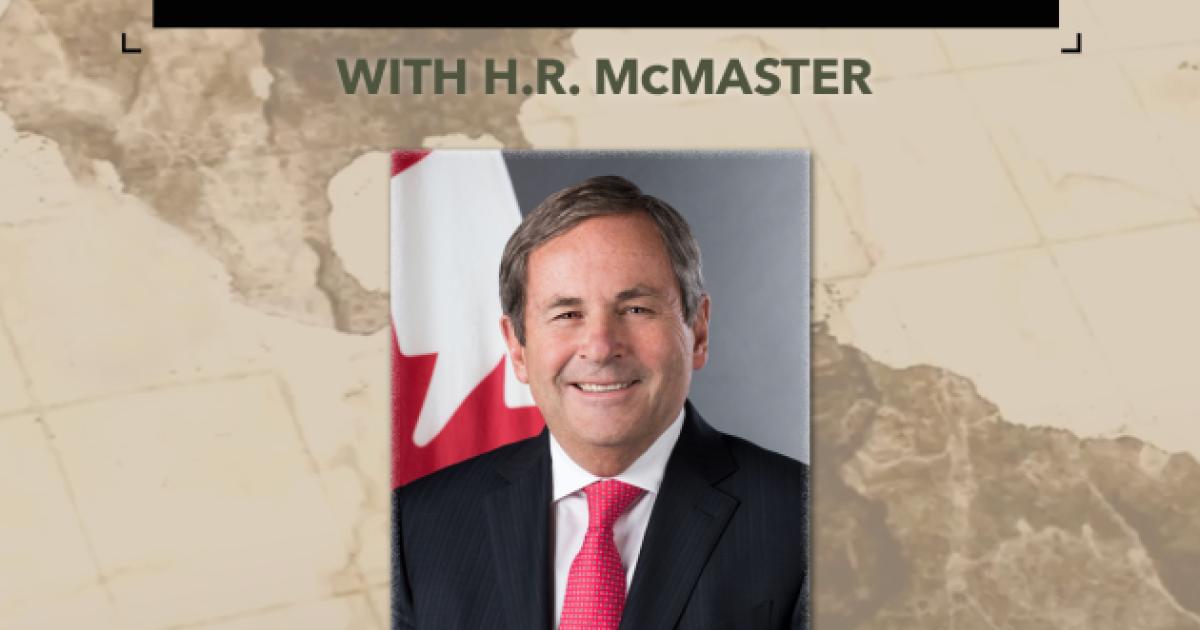- Energy & Environment
- Science & Technology
- Security & Defense
- US Defense
- International Affairs
- US Foreign Policy
- Cyber Security
- Terrorism
- History
- Economic
- Military
- Contemporary
- US
- World
- Law & Policy
- Civil Rights & Race
In this episode of Battlegrounds, H.R. McMaster and former Canadian Ambassador to the US David MacNaughton discuss the U.S.-Canada relationship and its implications for trade, economics, security, and climate policy.
H.R. McMaster in conversation with David MacNaughton on Wednesday, July 7 at 9:00am PT.
WATCH THE LIVESTREAM
In this episode of Battlegrounds, Fouad and Michelle Ajami Senior Fellow H. R. McMaster interviews David McNaughton, Canadian ambassador to the United States from 2016 to 2019. Topics in this conversation include Russia’s efforts to dominate the Arctic region; the consequences of the Biden administration’s cancellation of the Keystone XL pipeline; and how Canada and the United States can enhance cooperation to build and strengthen supply chains in the Western Hemisphere, as well as address security concerns posed by the People’s Republic of China (PRC) .
McNaughton explains that Russia has largely ignored international law in the Arctic Ocean and has taken an aggressive approach to gaining control over sea routes and natural resources. He stresses that Russian incursion potentially threatens not only Canada’s sovereignty but also the rights of indigenous peoples living in the Arctic region.
McNaughton provides criticism of the Biden administration’s decision to cancel the Keystone XL pipeline. He maintains that the policy will do nothing to mitigate climate change, since Canada still exports the same amount of oil and natural gas to the United States. He argues that the pipeline’s abandonment has forced Canadian companies to deliver these energy sources by rail, which is much less safe and environmentally less friendly. He also explains that the decision doesn’t seem logical in light of the administration’s lifting of sanctions against the Nord Stream 2 pipeline, which runs from Russia to Germany. He contends that constraining America’s energy supply will only cede advantages to adversaries such as Russia, since global demand for fossil fuels is unlikely to abate, and it will take considerable time before the global economy completely shifts to renewable energy sources.
McNaughton commends the United States–Mexico–Canada Agreement (USMCA) as a positive development in building reliable and secure supply chains and maintaining overall stability in the Western Hemisphere. This is especially important, he explains, to counter China’s ability to leverage dominance over medical goods, as Beijing demonstrated during the COVID-19 pandemic.
He asserts that the shifting of supply chains to the Western Hemisphere would also help build Mexico’s economy, and thus reduce domestic pressures on the US and Canada caused by the surge in the northward migration of peoples. Conversely, he criticizes narrow protectionist policies, such as those advanced by the Trump administration, as counterproductive to regional security and prosperity. For example, he says that in the pandemic’s early stages, Trump used the Defense Production Act to limit the export of personal protective equipment (PPE) to Canada, even though 25 percent of the materials used in American PPE were actually imported from British Columbia. McNaughton explains that ultimately, Canada successfully persuaded the Trump administration to reverse this policy.
Finally, McNaughton discusses the deterioration of Sino-Canadian relations, due in large part to the continued detainment of Michael Korvig and Michael Spavor, two Canadians who were arrested by the PRC two years ago on spying allegations. He affirms that while China remains an important trade partner, the Canadian government has placed greater scrutiny on Chinese companies, especially those in the technology industry.
ABOUT THE SPEAKERS
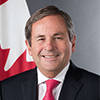
David MacNaughton was Canada’s Ambassador to the US from 2016 to 2019. With a long career as an entrepreneur in the private sector in Canada, Mr. MacNaughton is now President of Palantir Canada.
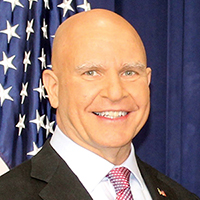
H. R. McMaster is the Fouad and Michelle Ajami Senior Fellow at the Hoover Institution, Stanford University. He is also the Bernard and Susan Liautaud Fellow at the Freeman Spogli Institute and lecturer at Stanford University’s Graduate School of Business. He was the 25th assistant to the president for National Security Affairs. Upon graduation from the United States Military Academy in 1984, McMaster served as a commissioned officer in the United States Army for thirty-four years before retiring as a Lieutenant General in June 2018.
Battlegrounds provides a needed forum with leaders from key countries to share their assessment of problem sets and opportunities that have implications for U.S. foreign policy and national security strategy. Each episode features H.R. McMaster in a one-on-one conversation with a senior foreign government leader to allow Americans and partners abroad to understand how the past produced the present and how we might work together to secure a peaceful and prosperous future. “Listening and learning from those who have deep knowledge of our most crucial challenges is the first step in crafting the policies we need to secure peace and prosperity for future generations.”







